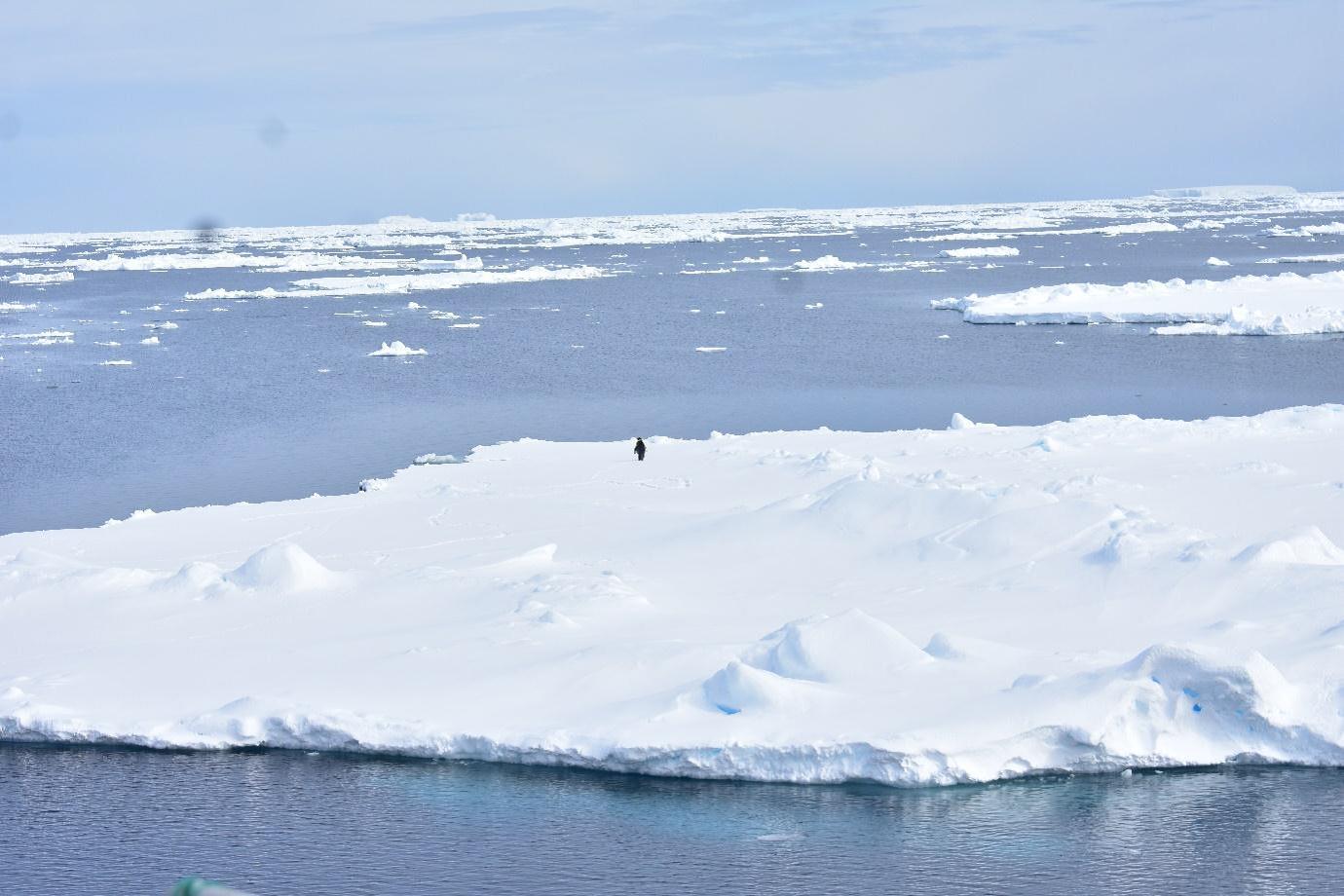Ministry of Earth Sciences

New NCPOR study attempts to resolve the Mystery of extremely low sea ice cover in Antarctic
Posted On: 23 APR 2024 5:05PM by PIB Mumbai
Goa, 23 April 2024
A recent study led by Dr. Babula Jena and colleagues from National Centre for Polar and Ocean Research, in collaboration with the British Antarctic Survey, United Kingdom, reported the conditions that led to unprecedented hindrance in Antarctic ice expansion and ice retreat ahead of the annual ice maximum in 2023.
In light of global warming, the Arctic has witnessed a significant loss of sea ice in the past decade, while the Antarctic experienced a moderate increase until 2015 followed by a sudden decrease since 2016. Notably, the Antarctic saw extremely low sea ice conditions during each summer from 2016 to 2023, with unprecedented slow ice expansion or retreat in 2023. The slow ice expansion in Antarctic occurred ahead of the annual maximum on 7 September 2023 with an ice extent of 16.98 million km2, which was 1.46 million km2 below the long-term average. The underlying cause of the observed sea ice changes remained a crucial question both for the scientific community and policymakers.

The findings suggest the excessive upper-ocean heat contributed for reducing the ice expansion in 2023, but the atmospheric circulation changes were considerable and played an important role. The change in wind pattern such as the extremely deep Amundsen Sea Low and its eastward shift resulted in strong northerly flow across the Weddell Sea. The northerly wind gave record atmospheric warming and forced the ice-edge to remain southward from its usual position. It is important to mention that the Amundsen Sea Low, being a low-pressure system, is known to exert considerable influence on the climate fluctuations of West Antarctica and the surrounding oceanic conditions. In the Ross Sea, rapid changes in ice extent occurred mainly due to the record strengthening of an atmospheric block that gave strong northerly winds off the Ross Ice Shelf. In summary, an impact of exceptional ocean-atmospheric warming and changes in winds, combined with heat fluxes, extreme winds and high ocean waves associated with polar cyclones (storms), contributed to the record low ice conditions in Antarctic. In particular, cyclones caused episodes of exceptional slow ice expansion or even retreat. For instance, the ice-edge in the Weddell Sea was moved southwards quickly in a few days (up to 256 km southward) with an ice area loss of ~2.3 × 105 km2, equivalent to the size of United Kingdom. The low ice conditions is likely to have a significant impact on the amplification of global warming (through ice-albedo feedback process), life in the Southern Ocean, the regional ecosystem, ocean circulation, ice shelf stability, and sea level rise.
Considering the relatively short records of satellite observations (~45 years), it is difficult to assess whether the decrease in ice extent observed during the past seven years and current reduction in ice growth is part of a long-term decline as projected by climate models. While natural climate variability plays a significant role in the recent decrease in ice extent, the effect of anthropogenic factors is also important in triggering such an anomalous event. The interaction between anthropogenic forcing and the climate variability is unclear within the region which needs further investigation.
About NCPOR
The National Centre for Polar and Ocean Research (NCPOR), under the Ministry of Earth Sciences, is India’s premier research and development institution responsible for the country’s research activities in the polar and ocean sciences
* * *
(Source : NCPOR) | PIB Panaji | GSK/D.Rane
Follow us on Social Media:![]() @PIBPanaji
@PIBPanaji  /PIBPanaji
/PIBPanaji ![]() /pib_goa
/pib_goa  pibgoa[at]gmail[dot]com
pibgoa[at]gmail[dot]com  /PIBGoa
/PIBGoa
(Release ID: 2018613) Visitor Counter : 305




















